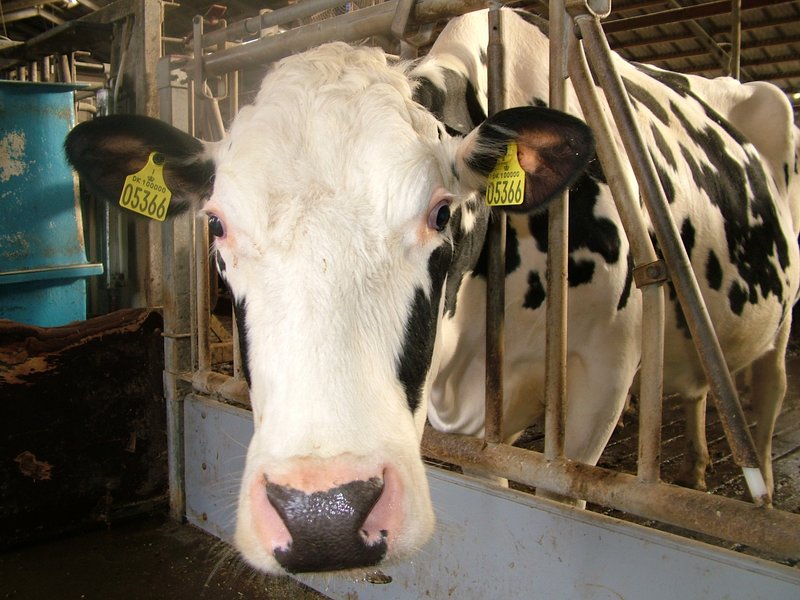Aarhus University researchers to investigate fate of carbon and hydrogen in rumen when methane production is reduced.
May 15, 2020

Methane consists of carbon and hydrogen and is formed as a natural part of the microbial fermentation in the rumen from hydrogen and carbon dioxide, both of which are final products from the fermentation of carbohydrate in the rumen, according to an announcement from Aarhus University in Denmark.
Ruminal methane production in cattle may be reduced by adding fat to the ration or by adding a new feed additive, 3-nitrooxypropanol (3-NOP, Bovaer from Royal DSM in the Netherlands), Aarhus said. However, it is unclear whether the reduced production of methane means that more carbon and hydrogen are lost in the form of exhalation of carbon dioxide, hydrogen and hydrogen sulfide or if there is more carbon and hydrogen actually available for the animal's metabolism and where that carbon and hydrogen subsequently end up.
A new feeding experiment at Aarhus University-Foulum is to shed light on this question.
“Carbon and hydrogen exhaled in the form of carbon dioxide and hydrogen, respectively, have no value for the cow. However, if it is included in the formation of microbial protein and volatile fatty acids, such as acetic acid, propionic acid and butyric acid, which the cow can subsequently utilize, then it will be positive for the animal's energy and nutrient supply. Therefore, we need more knowledge about the positive and possible negative consequences of a reduction in the production of methane in the rumen compared to the animal's supply of energy and nutrients,” said Aarhus department of animal science professor Peter Lund, who is leading the experiment.
Nutrient supply
The new 3-NOP feed additive has been studied in a wide range of countries in dairy cows, beef cattle, calves and other ruminants, Aarhus said. The substance works by inhibiting an enzyme that contributes to the latter part of the methane formation in the rumen. Research studies have shown that the dairy cows' methane emissions are reduced by an average of approximately 30% when 3-NOP is added to the daily cattle feed ration.
The feed additive is expected to be approved by the European Union late 2020/early 2021, after which it will be marketed throughout the EU.
Previous experiments at the Aarhus University-Foulum station have shown that more fat in the feed can reduce the release of methane from the cows' digestion by up to 10%. However, the researchers must now investigate further how extra fat allocation and the inclusion of 3-NOP affect the animal's supply of nutrients in the new feeding experiment.
New experiment
The experiment, which is carried out in Foulum's cattle experimental facilities, includes four Holstein cows. The following treatments are used in the experiment: (1) control, (2) adding extra fat to the ration, (3) adding 3-NOP to the ration and (4) adding extra fat and 3-NOP to the ration.
During the experiment, researchers will collect data on the cows' feed intake, fermentation profile in the rumen, microbial protein synthesis, nutrient utilization in the different sections of the gastrointestinal tract, milk production and milk composition, Aarhus said. During the trial, the amount of methane, hydrogen, hydrogen sulfide and carbon dioxide in the exhalation air from each cow will also be analyzed.
“In addition to investigating what happens to the amount of carbon and hydrogen that is no longer included in the formation of methane, we will also get data on the methane-reducing effect of fat and (3-NOP) separately and simultaneously under Danish conditions. These are currently two of the most promising strategies for reducing the production of methane from dairy cows,” Lund concluded.
The project is part of the overall project “Reduced Climate Imprint at Cow & Farm Level,” funded by the Dairy Levy Foundation, and will be carried out in collaboration with Royal DSM.
You May Also Like



